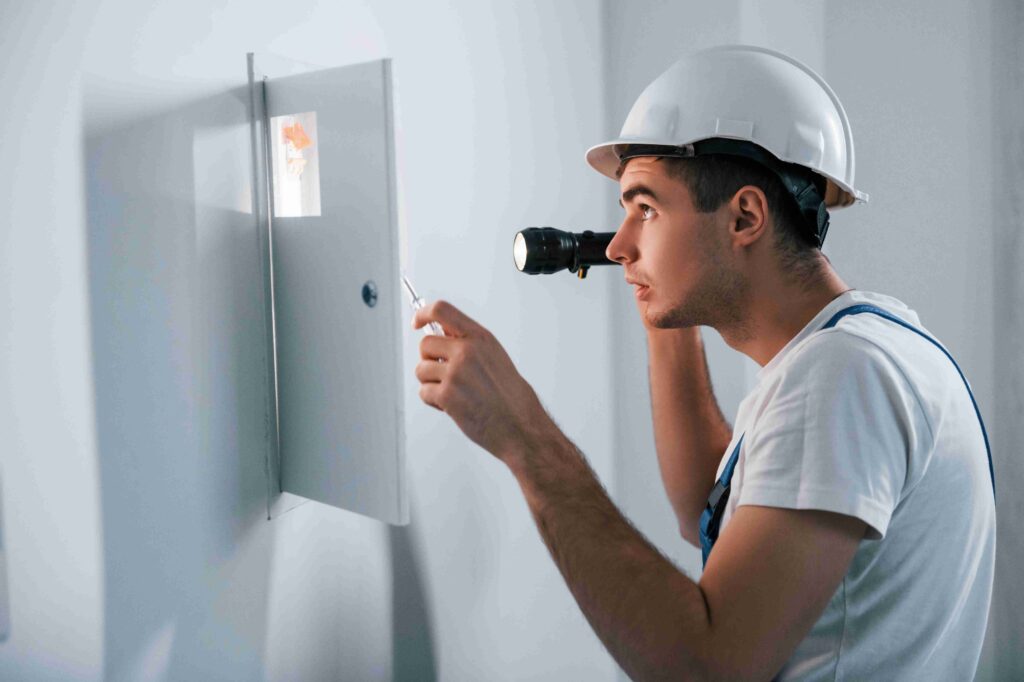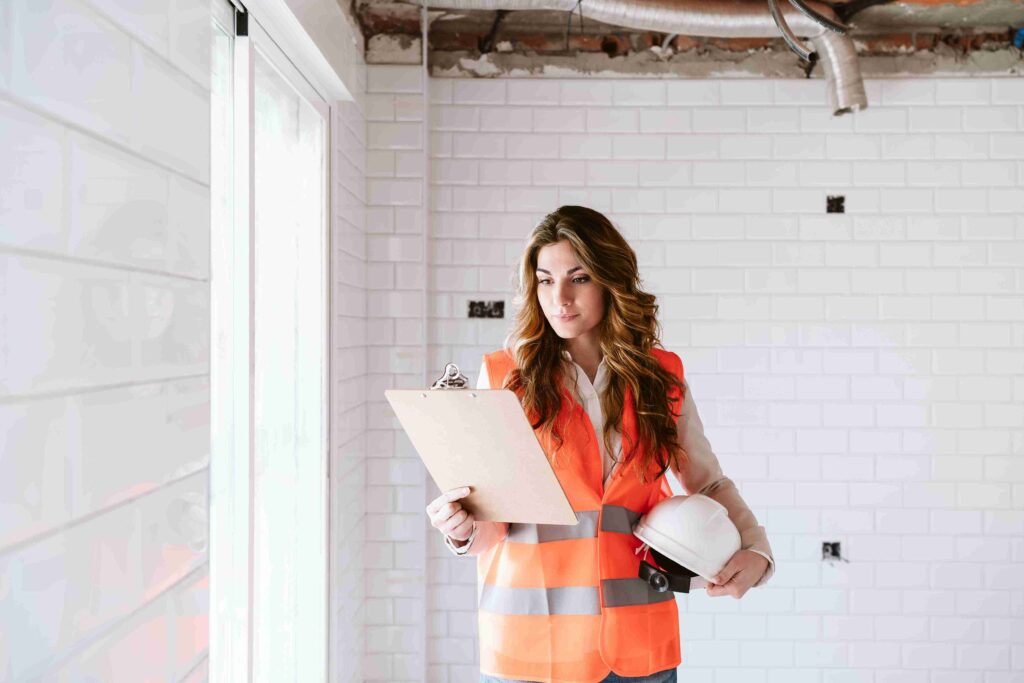
Can I Do My Own Home Inspection? (Explained)
Buying a home is a big deal. For most people, it’s the largest purchase they’ll ever make. That’s why home inspections are such a common step in the process.
But if you’re the type who likes to save money and take matters into your own hands, you might be wondering if you can do your own home inspection.
You can do a basic walkthrough and spot a lot of surface-level issues. But there’s a big difference between your quick check and a professional inspection.
That difference can save you stress, money, and some nasty surprises down the line.
In this post, we’ll explain if you can do your own home inspection.
Can I Do My Own Home Inspection?
You can walk through a home yourself and look for red flags, but doing your own inspection isn’t the same as a professional home inspection.
A licensed home inspector is trained to catch details most buyers miss.
That said, you can absolutely do a personal walkthrough before (or even in addition to) hiring an inspector. Think of it as a way to spot obvious issues early, so you don’t waste time or money on a place that has big problems.
Also Read: The 12 Types Of Home Inspections
Here are some things you can check on your own:
- Look for water stains, mold, or damp smells.
- Test faucets, toilets, and showers for proper function and drainage.
- Flip light switches and check outlets.
- Peek in the attic and basement for leaks, pests, or structural issues.
- Inspect doors, windows, and floors for unevenness, drafts, or cracks.
- Walk around the exterior for roof damage, foundation cracks, or grading issues.
You can do a basic inspection yourself, but it won’t replace the thoroughness of a professional.

Most buyers still hire an inspector because missing a hidden problem (like faulty wiring or foundation damage) can cost way more than the inspection fee.
Limitations Of Doing Your Own Home Inspection
Homes are complicated. You can spot some obvious issues on your own, but the sneaky stuff often hides in places you’d never think to check.
For example, you might notice a crack in the basement wall, but you won’t know if it’s just cosmetic or a sign of foundation trouble. You can run the shower, but you probably won’t crawl into the crawlspace to see if the drain pipe is leaking behind the wall.
And while you can glance at the roof, you likely won’t spot early signs of shingle damage or ventilation issues.
Also Read: Things That Fail A Home Inspection
Another big challenge is experience.
A professional inspector has seen hundreds of homes. They know what a normal amount of wear looks like and what could be the start of a big, expensive problem.
As a buyer, you might overreact to small cosmetic things and completely miss bigger underlying issues.
So yes, your walkthrough is helpful. But without the training, tools, and background knowledge, you risk missing something that could cost thousands down the line.
Benefits Of Hiring A Professional Inspector
A licensed inspector brings much more to the table than just a second pair of eyes. They have the skills, tools, and impartial mindset to uncover problems you might never notice.
Here’s what makes professional inspections worth the money:
Expertise And Experience
Inspectors have gone through specific training, certifications, and countless hours in the field. They’ve seen the good, the bad, and the truly ugly when it comes to homes.
Because of this, they know the difference between minor wear and tear and something that could turn into a nightmare repair.
That experience helps them notice patterns and spot subtle clues you’d likely walk right past.

Also Read: Things To Check Off When Choosing Your Next Home Inspector
Specialized Equipment
Your eyes and a flashlight can only get you so far.
Inspectors show up with tools that take the guesswork out of things.
Moisture meters can detect water damage hidden behind walls. Infrared cameras reveal insulation gaps and overheating electrical systems. Outlet testers confirm wiring is safe and up to code.
Even something as simple as a ladder lets them check areas most buyers wouldn’t touch.
These tools often expose issues long before they become obvious.
Unbiased And Objective Assessment
Buying a home comes with emotions. Maybe you love the neighborhood or you’ve already pictured where the couch will go.
That excitement can make it easy to downplay problems.
Inspectors don’t have that attachment. They’re not trying to talk you into or out of the house—they’re simply reporting the facts.
That objectivity ensures you’re getting a clear, honest picture of the home’s condition.
Comprehensive Reports
Once the inspection is done, you’re not just handed a quick summary. Inspectors provide detailed reports, often complete with photos and explanations.
These reports break down what’s wrong, what might need attention soon, and what’s just cosmetic. They’re written in a way that helps you understand the seriousness of each issue.
Even better, these reports become valuable bargaining chips during negotiations.
You can use them to ask for repairs, request a price reduction, or plan your future maintenance budget.
We Recommend Doing Both!
The smartest strategy is to use both approaches together.
Do your own walkthrough first. That way, you can weed out houses with obvious problems before paying for a pro.
If the place passes your basic check, then bring in a licensed inspector to dig deeper.
This two-step process saves you time, money, and stress.
Imagine spotting a sagging roof on your own and deciding not to waste money on an inspection. Or finding a house that looks great to you but has major electrical issues uncovered by the pro.
That’s money well spent, because you avoided a disaster.
Bottom Line
You can do your own home inspection, and you definitely should as a first step. It helps you catch obvious issues and decide if a house is worth pursuing.
But your walkthrough isn’t a replacement for a professional inspection.
Pros bring expertise, tools, and objectivity that you simply can’t match on your own.
The best approach is to combine the two. Do your own basic check, then hire a professional to dig deeper. That way, you get peace of mind, protect your investment, and avoid costly surprises after you move in.







